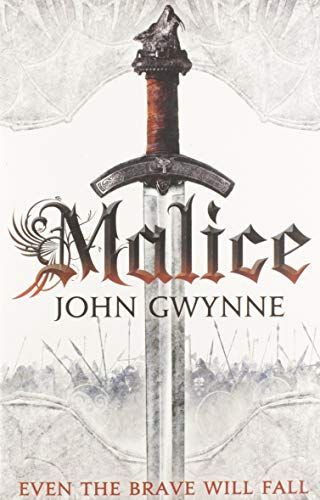
Malice
The world is broken... Corban wants nothing more than to be a warrior under King Brenin's rule - to protect and serve. But that day will come all too soon. And the price he pays will be in blood. Evnis has sacrificed - too much it seems. But what he wants - the power to rule -- will soon be in his grasp. And nothing will stop him once he has started on his path. Veradis is the newest member of the warband for the High Prince, Nathair. He is one of the most skilled swordsman to come out of his homeland, yet he is always under the shadow of his older brother. Nathair has ideas - and a lot of plans. Many of them don't involve his father, the High King Aquilus. Nor does he agree with his father's idea to summon his fellow kings to council. The Banished Lands has a violent past where armies of men and giants clashed in battle, but now giants are seen, the stones weep blood and giant wyrms are stirring. Those who can still read the signs see a threat far greater than the ancient wars. For if the Black Sun gains ascendancy, mankind's hopes and dreams will fall to dust... ...and it can never be made whole again. MALICE is a dark epic fantasy tale of blind greed, ambition, and betrayal.
Reviews
Aims@aimz
Sephirra@ihrtcheese
Leonie@morallyblack
Savannah Winchell@savantagonist
Celeste Richardson@cecereadsandsings
Caitlin Scott@stormblessed
Alost@alosthargobind
Mikael Thibodeau@miketea
Francis Buggey@fcbugreads
Amira BEN@amirasreading
Annabel Kanters@hetlevenvaneenboekenworm
Monae Reads@lifeasmonae
Luna@lunaslibrary
Judy McClure@crazee4books
Jenna Kathleen@jennarator
Tom Turner@tomjsturner
Nickie Mohler@hazelreads1
Eva@evamaren
Chau Nguyen@cxnguyen06
Aline Wirth@thefitbooknerd
Anyaconda@kaffeeklatschandbooks
Dessa@odessack
nina @ninaisreading
Bella Fawn@fawnfox
Highlights
Samantha Jackson@rogue91
Page 234